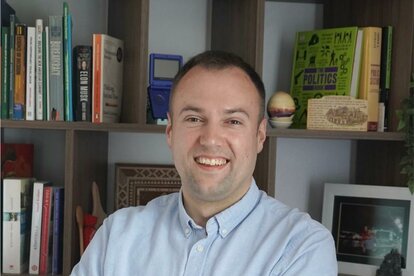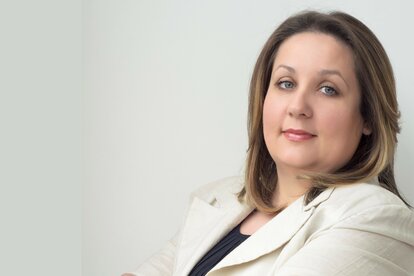In development organizations like Helvetas, sharing knowledge is incredibly vital to achieving the process of collaboration and improving performance. However, when you don’t have the proper culture to efficiently create, organize, and share knowledge, it becomes hard for everyone to be a part of that collaboration. But there’s a way to solve the problem—creating a knowledge-sharing network.
You may wonder what knowledge-sharing networking is all about. For us, it’s a collection of individuals or teams who come together across organizational boundaries to invent and share knowledge. Whether this knowledge is derived and created through data, research, or critical thinking, it’s something that can help the organization to thrive and move quickly toward its goals. Key players in knowledge include people and information. An individual’s knowledge can craft organizational objectives, especially if this knowledge is shared. Knowledge is power, knowledge sharing is empowerment!
A knowledge-sharing network is accomplished through various features in an organization or a regional program like RECONOMY, especially when open critical communication is implemented when a sense of responsibility between co-workers is felt, or even when a belief that expertise from various individuals is more beneficial than completing a task alone. This way, the organization begins to charge toward a knowledge-sharing network. And this is what we did in Tirana, Albania!
Emilija explained in her previous post how we build and sustain stakeholder relationships while working remotely, but this time we’ll show you what we were up to while having the chance to work in person with our implementing partners.
Walking the talk...
RECONOMY is a regional program. Thus, we organized the first regional networking and workshop event in one of the 12 countries we work in, Albania. We brought all our implementing partners from the Eastern Partnership region and the Western Balkans to one place, to meet face to face, learn from each other, discuss the ways forward, network, to identify potential synergies for regional collaboration by applying the Market Systems Development (MSD) principles, and other tools that will help them scale-up successful interventions. In short, we created a knowledge-sharing network!
Before we set off for the regional workshop, we organized a networking activity to create excitement around learning and knowledge sharing. This helped to strengthen relationships between our partners.
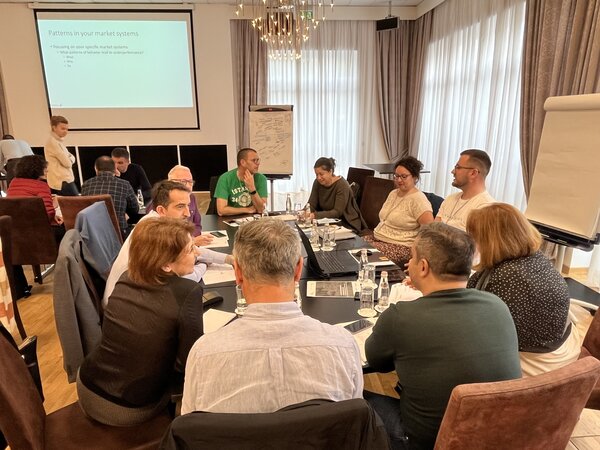
What did we achieve?
First, the regional workshop allowed everyone to share knowledge and information gained with others, contributing to mutual value creation. We applied a participatory approach, transforming the workshop into a marketplace where everyone participated and learned from one another. We encouraged the exchange of tacit knowledge and kept our partners engaged. This way, we captured key content and ideas.
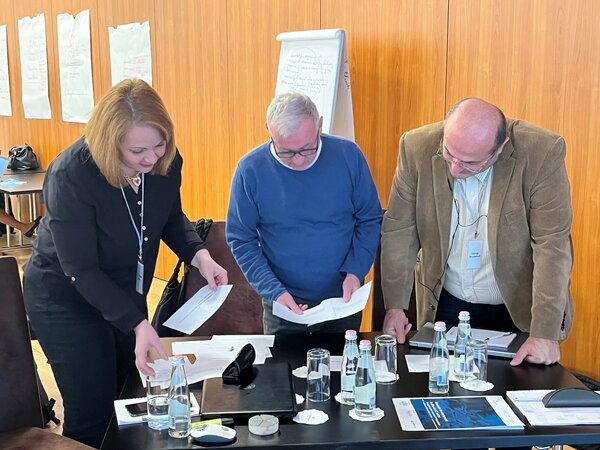
Second, in the workshop knowledge sharing has paved the road to success wherein effective collaboration and communication are needed between different organizational facets for meeting common objectives. “We’ve met really interesting people from different countries with similar [interventions]. We found common ground to communicate,” said Vahan Khachatryan, a representative of the Fashion and Design Chamber of Armenia.
“The workshop brought together lots of different partners from different countries working in different sectors. The workshop is helping them to understand each other’s perspectives and their sectors and see the relevance of the regional program can help them to assist each other’s work and maybe help each other in a very technical sense, but also to amplify the impact of RECONOMY as a whole,” said Ben Taylor, an expert in the systemic approach to development, one of the facilitators of the regional workshop.
“It’s really interesting to learn about the activities of other partners, not necessarily in the same sector but other sectors as well, and seeing how the IT sector or the textile industry, or waste management, can lead to the main objective of the program. In addition to this, now I know who I can talk to if I need specific information or support in a sector that is not our prime focus,” said Anna Molnar, a representative of Help—Hilfe zur Selbsthilfe.
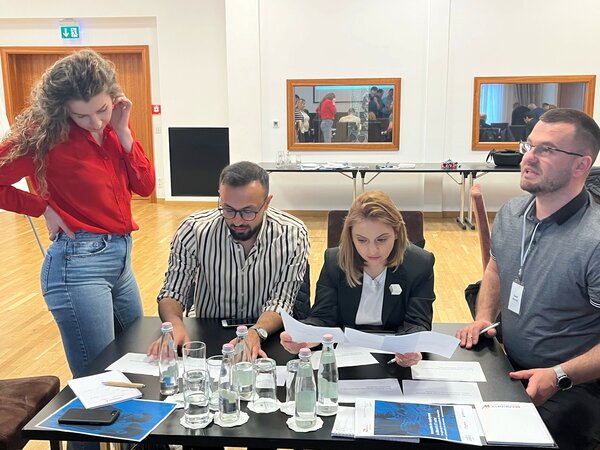
Third, the benefits of sharing knowledge can be rightly understood in terms of feelings of recognition gained by the people on account of gaining access to needed information and know-how. “This is an important event for our community and the fashion industry because this is the only opportunity for us to get in contact with [regional] actors from different sectors, not only fashion. We also had an opportunity to meet other organizations from the textile sector like the Fashion and Design Chamber of Armenia, and we already discussed potentials for collaboration” said Carolina Tulgara, a representative of ZIPHOUSE Fashion Hub.
“What I’m seeing and learning is how much there is in common and how many opportunities there are for integrating gender and social equity and inclusion to make MSD more inclusive and ultimately reach systemic change through multistakeholder partnerships,” said Agnieszka Kroskowska, a gender and social equity coordinator at Helvetas, one of the facilitators of the regional workshop.
To conclude, our experience in the workshop showed that these types of events contribute well to the goal of KMLC within RECONOMY and that is to support our implementing partners, including our stakeholders, to become knowledge-sharing organizations and contribute towards establishing an even better knowledge-sharing culture!


